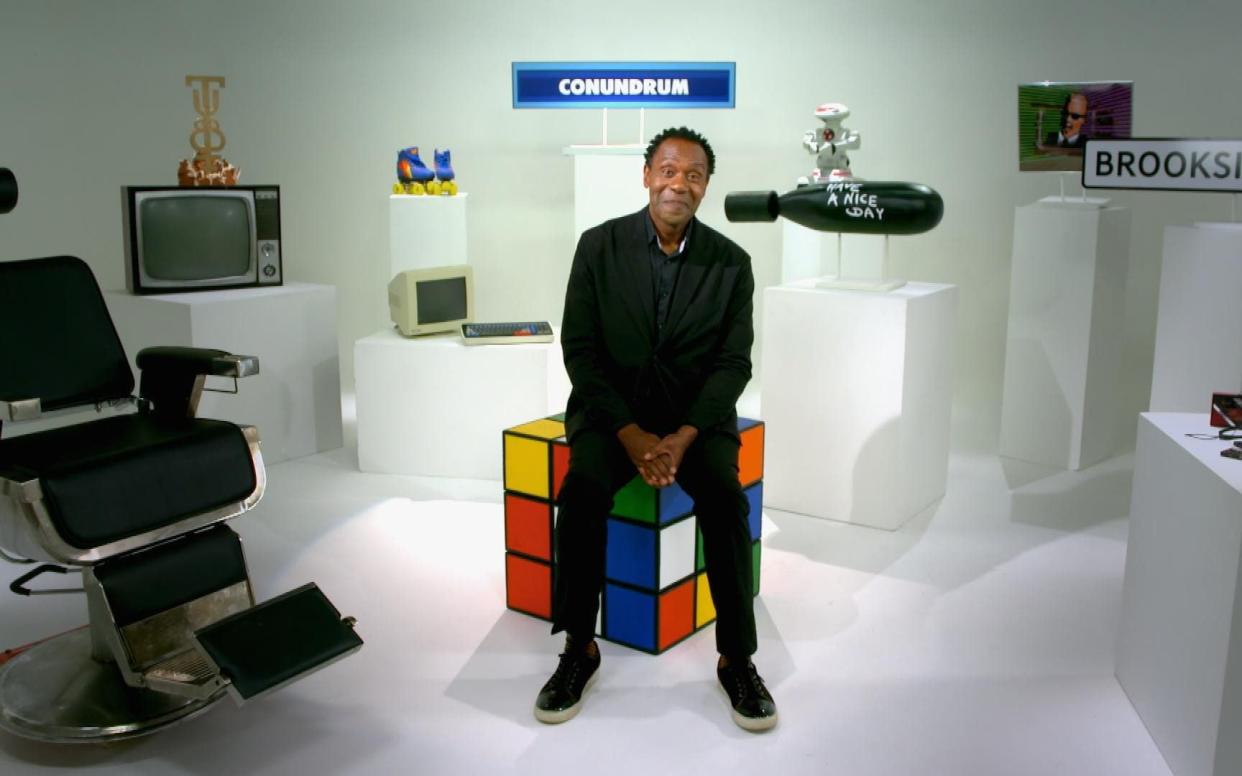Lenny Henry's campaigning work is inspirational (shame about his jokes, though)

- Oops!Something went wrong.Please try again later.
While speaking in Parliament in 2017, Lenny Henry led a mass singalong to Milli Vanilli’s Girl You Know It’s True. This event might one day be studied as a turning point in the history of British broadcasting. Really.
In recent years, the comedian has been a dynamic force in campaigning for media diversity: not just lamenting a lack of representation, but putting forward practical solutions. One such solution was adopted by the BBC in 2014: ring-fencing funding for diverse productions, an idea dubbed “the Henry plan” by the media, though cooked up with other campaigners including the television executive Marcus Ryder.
Henry’s battle to get it passed is laid out here, along with other successes: first getting a requirement for diversity written into the revised BBC Charter, and then in 2017 convincing Ofcom to apply it to off as well as on-screen talent. (The alternative is the kind of tokenism that, in Parliament, he called “Milli Vanilli” diversity, comparing it to the duo who lip-synched songs written, produced and sung by white musicians.) He’s still fighting another false friend – “Humpty Dumpty” diversity. In the absence of a standardised, Ofcom-approved definition for “diverse” productions, each broadcaster can decide (like Lewis Carroll’s character) it “means just what I choose it to mean”, and congratulate themselves on meeting their own self-set low bar.
A working title for this book was “Lenny’s Adventures in Diversity Wonderland” and, though co-written with Ryder, it’s all in Henry’s voice. This is not necessarily a strength. In comedian-does-data books, the jokes are usually a carrot to keep you reading through the dry statistics. Here, the fascinating statistics are a relief from the jokes, which usually come as tacked-on similes: “Just like the M5 to Devon on a Bank Holiday Monday, this was not going to be an easy journey.” Henry’s voice – so warm and natural on stage – in print comes across as too desperate to entertain. “After the Bafta speech I was on an emotional high. High? I was like lovely Russell Brand in the bad old days – I was flying, buck nekkid, no wings – just vroooom!” And yet even the most basic facts and numbers here are striking. For instance, take his response to a Faber editor who told him, “This is a book about diversity so, by definition, this is a book about a minority of people.” Not so: almost all of us fall into an under-represented category. Straight, white, able-bodied men from London or its commuter-belt – though ubiquitous in the media – “make up only 3.1 per cent of the population”.
This is the kind of short, punchy, politics-for-dummies book destined to end up beside the till at Waterstones. And a good thing, too: it deserves to be widely read. Its most original arguments (outlined by Henry in a Telegraph article this week) are a refreshing challenge to stale ideas. It also benefits enormously from his personal perspective. In the 45 years since his New Faces TV debut, he has seen only incremental change. He admits that finding himself the only non-white person in the room, again and again, takes an emotional toll: “A lot of the time, at work, I am lonely. Very lonely. There. I said it. Phew.”
Access All Areas: The Diversity Manifesto for TV and Beyond is published by Faber at £7.99. To order your copy call 0844 871 1514 or visit the Telegraph Bookshop

